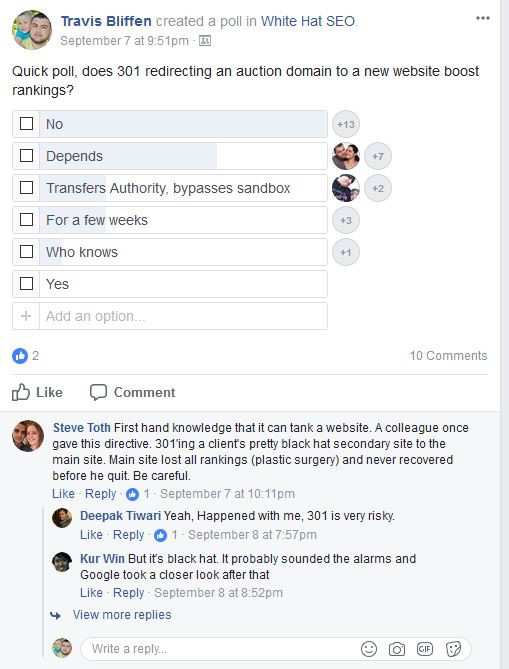301 Redirects: A Potentially Manipulative Link Building Tactic that Works?

As long as rankings are determined by an algorithm, there will be ways to manipulate the results. While many tactics of the past (like automated link building) won't get you far today, there are others that still work well.
As a consumer, being aware of these tactics can give you a solid foundation to stand on when discussing your project with your SEO provider. It is not to say that these are right or wrong in all cases, rather that you should be informed as the consumer of your options so that you don't pay for one service and end up getting another.
Honesty is always the best policy so if you are an SEO provider, I encourage you to be open with clients and explain the risks associated if the following tactic is applicable in their situation.
In case you don't already know, the 301-redirect method is one in which you buy an expired or auction domain with good links pointing to it and you "point" that site to your own to boost your rankings. The practice came from people seeing the impact of legitimate 301 redirects, like when a company rebranded or was bought out. But, does this method work in 2017?
* Website Magazine does not endorse nor recommend potentially manipulative search practices, but recognizes the value in publishing what readers' competitors may be doing. As with any Web strategy, proceed at your own risk.
301 Redirects to Boost Rankings?
I was curious what the consensus was about 301s, so I ran a quick poll in a popular White Hat SEO group and not one person marked "yes" they do work. 
301s Don't Work and They Always Hurt Your Site
As would be expected, we even got some cautionary tales of 301 redirects gone wrong and the damage they did. That should serve as a reminder that any time you try to manipulate Google, it could backfire. If you don't understand the potential risks, don't do it. Out of the 26 people who chimed in on the poll, 13 said that this tactic does not work, which is incorrect.
301s Work Sometimes...
The people who marked "depends" were on the right track though. They mentioned that the quality and relevance of the domain being redirected was very directly related to how well this would work. If you plan to try this method, the site you redirect to your own should be topically relevant and it should have a clean link profile. If you don't know how to check those things, you shouldn't use this method.
301s Work Temporarily
Another common thought is that while a 301 can work, it will only do so for a few weeks/months and then it will stop working or get your site penalized. If you choose a questionable domain name to redirect to your site or you redirect a penalized domain to your site, you are likely to find this to be the case. Again, it all comes back to the site you pick to redirect to your own.
Pictured above is a test that has been ongoing for nearly a year now. The keyword growth that you see is the result of a single 301 redirect. The domain chosen for the redirect was bought at auction and had a very healthy link profile, in addition to being very topically relevant.
Even though there have been numerous updates over the past year, not one of them penalized this site or even stopped the steady growth.
 Should You Use 301s?
Should You Use 301s?
The point of sharing this information is twofold. First, if you are an SEO provider, you should be testing, re-testing, and testing some more with unique combinations so you know what works and what doesn't. Do not build a strategy based upon third-party information, instead, use it as a basis for your own testing.
If you are a consumer, you should be aware that depending upon your goals, budget and current situation, there are options. If a quick boost in search traffic is the only way to keep your doors open, what do you really have to lose?
Whether you use this method really comes down to what you want to accomplish and what level of risk you are willing to take. Back in 2014 I wrote an article titled "The Four Types of SEO- Black, Grey, White, and Effective" in which I compare the various methods to types of investments. As a business owner, you should have all the information you need to make the choice that fits your needs. Denying strategies that can work is keeping that information from you.
Whichever side of the fence you are on, business owner or SEO, white hat loyalist or ROI focused, it is imperative that you always test, adjust and refine your strategies to get the best possible results.
About the Author









